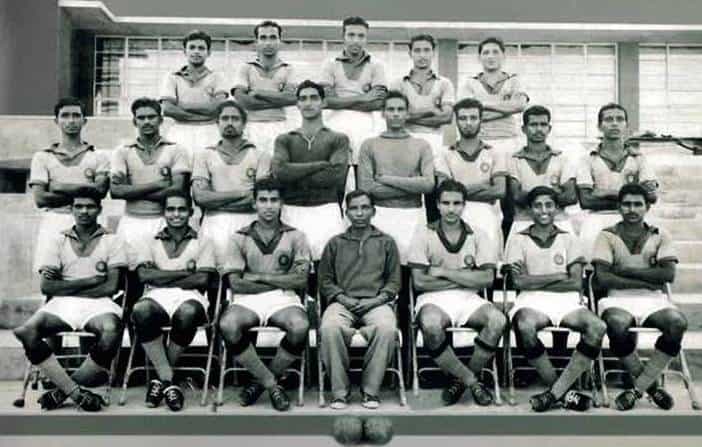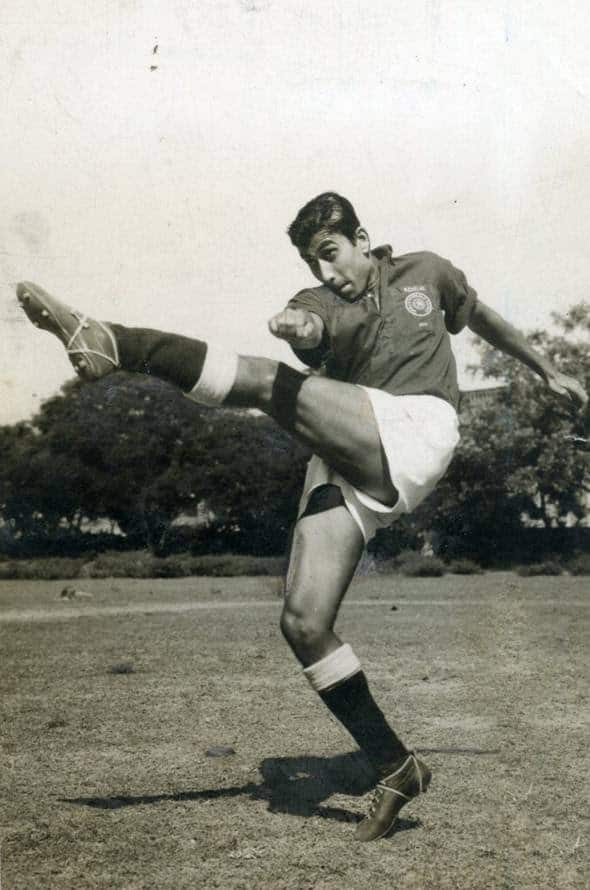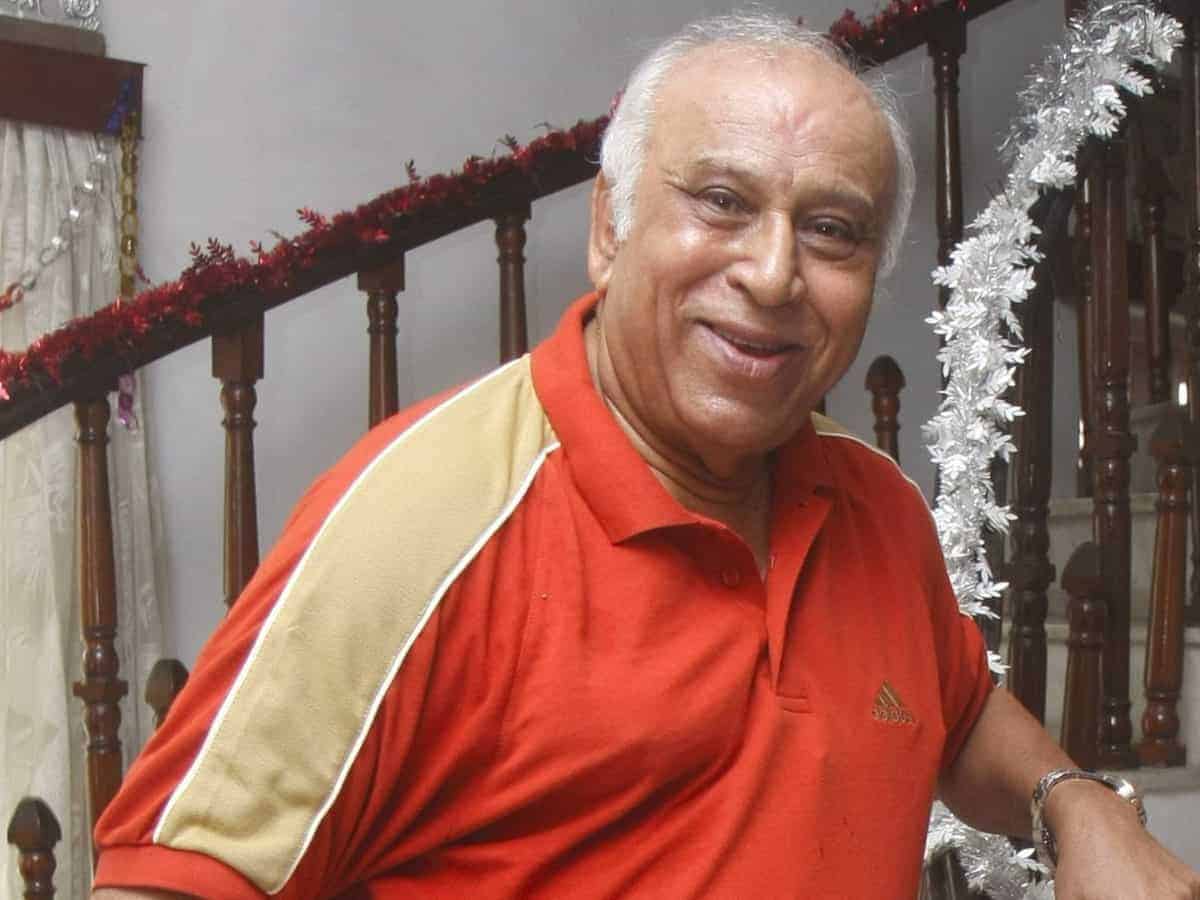When P.K. Banerjee passed away this day last year, he left behind a void in Indian football that will be difficult to fill. As a player he was excellent, as a coach he was outstanding and as a football expert on television and print media, his vast knowledge educated and informed the viewers and readers.
He was one of the first recipients of the Arjuna award when the awards were instituted in 1961. Besides he was also awarded the Padma Shri and later named Indian Footballer of the 20th Century by the International Federation of Football History and Statistics. But one of the greatest honours came from FIFA – the world governing body of football. FIFA conferred on him its Centennial Order of Merit in 2004. This was the highest honour awarded by FIFA for footballers and officials from all over the world.
“PK” as he was popularly known, captained the Indian team at the Rome Olympic Games in 1960. Before that he was a member of the team which came fourth at the Melbourne Olympics in 1956. After leaving the game as a player, he turned to coaching and studied to become a FIFA qualified coach. His phenomenal success as a club coach for East Bengal and then Mohun Bagan led him to be named coach of the Indian team.

In his autobiography titled Beyond 90 Minutes, P.K. Banerjee has provided interesting insights into his life, his game and his attitude which enabled him to become one of the legends of Indian football.
In 1955 PK was first selected to play for India in the Quadrangular tournament in Dhaka. He was in the team along with some other great names such as Sailen Manna, S. Mewalal, Ahmed Khan, Abdus Sattar and Aziz.
He developed a secret signal with the goalkeeper Peter Thangaraj who was from Hyderabad. Before executing a long kick into the opponent’s half, the tall and sturdy Thangaraj would bounce the ball twice on the ground. That was the signal for PK that it would be a very long kick and that PK should run ahead to trap the ball and convert the opportunity into a goal.
This trick between the two of them worked well in several matches. Some of PK’s goals came from this trick that he developed along with goalkeeper Thangaraj.
Before the 1956 Olympics PK met Syed Abdul Rahim the famous and respected coach from Hyderabad. Rahim had a long lasting effect on PK’s game and his life. It was Hyderabad’s well known footballer S.K. Azizuddin, better known as Aziz, who brought PK to Hyderabad and introduced him to Rahim sahab.
“He was an amazing coach,” PK recalls. “He was a strict taskmaster but always fair minded. He never shouted at any player and never humiliated anyone. But he did not take any rest himself and he did not allow his players to rest until they had reached perfection. When I became a coach I tried to follow the same methods as Rahim sahab. I used to think … What would Rahim do in this situation? I will do the same.”
At the end of the training camp, when Rahim finally selected the team for the Melbourne Olympics, PK was thrilled to hear his name being read out. But he was also disappointed that his fellow striker Chuni Goswami (who became a famous player later) was not selected. PK and Chuni had formed a very formidable combination along with Hyderabad’s T. Balaram. But that combination did not go to Melbourne.
At Melbourne, India defeated Australia 4-2. Neville D’Souza scored a hattrick in the match. But later India lost to Yugoslavia and Bulgaria to end up in fourth place.
How PK Checked Pele?

Many years later, PK became a FIFA certified coach. He was the coach of Mohun Bagan during its historic match against New York Cosmos in 1977. The team from the USA had in its ranks several well-known players including Pele. Although the Brazilian master was then past his best, he was still a very big threat to any team from Asia.
It was up to PK to formulate a strategy to check the world’s best goal scorer. PK devised a four pronged defence against Pele in which Mohammed Habib of Hyderabad played a key role along with Gautam Sarkar, Pradip Choudary and Subrata Bhattacharya. The quick moving Hyderabadi did such an effective job that after the match Pele mentioned Habib’s name and said that he had played an excellent game.
PK’s tactics and guidance of his team against the World Cup players from New York Cosmos were highly successful and the match ended in a 2-2 draw. Pele could not score a single goal.
PK also had a hair raising experience once. Before a big match in Kolkata, supporters of the rival club kidnapped his daughter who was then 9 years old. The idea was to distract the coach from performing his duty.
The kidnappers had no intention of harming the child. They just wanted to create mental and emotional pressure on PK and distract him from his coaching duty. So they kept the girl under custody for some time and then took her to a railway station several kilometres away from Kolkata and left her there. After a harrowing and tension filled couple of days, the girl was found by the police and restored to her parents.
Such was the eventful life that PK had. Later while providing expert comments on television, his observations were always to the point. He brought forward aspects of the game that many others missed. And his memory was such that he could recall events and matches played decades ago in such perfect detail that it was a great pleasure to listen to him. He was truly a giant of a man in the football scene and his absence will be felt for many years to come.
Abhijit Sen Gupta is a seasoned journalist who writes on Sports and various other subjects.

